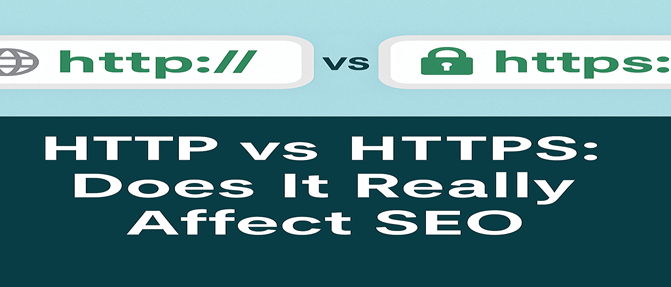Yes, HTTPS does affect SEO. Unlike HTTP, it uses SSL to secure data, builds user trust, and aligns with Google ranking factors. The SEO benefits of HTTPS include higher rankings, better privacy, and stronger website authority in 2025
Key Takeaways
- HTTP lacks encryption, user trust, and SEO strength.
- HTTPS uses an SSL certificate to secure data and improve rankings.
- Google ranking factors now favor websites with HTTPS migration.
- HTTPS prevents duplicate content issues and fixes mixed content problems.
- Secure website protocol builds user confidence and improves conversions.
- Data privacy in SEO is better protected with HTTPS.
- The SEO benefits of HTTPS in 2025 make it the clear choice over HTTP.
What Does HTTP Mean for SEO and Its Limitations?
HTTP stands for Hypertext Transfer Protocol. It is the standard protocol that allows web browsers to communicate with servers. While HTTP was widely used in the early days of the internet, it has limitations when it comes to SEO and security.
- Lack of encryption: HTTP does not use a secure socket layer, meaning data travels in plain text. This makes sensitive information vulnerable.
- Trust issues: Modern users hesitate to share personal details on sites without a secure website protocol.
- Negative ranking signals: Google ranking factors now consider HTTPS as a positive signal. HTTP websites may struggle to compete.
- Mixed content issues: Websites that partly use HTTPS and partly HTTP often face indexing challenges.
- Data privacy in SEO: Since HTTP does not encrypt data, it limits how secure browsing data is handled.
In short, HTTP may still function but is outdated, unsafe, and less effective for long-term SEO growth.
What Does HTTPS Mean for SEO and How Does It Work?
HTTPS stands for Hypertext Transfer Protocol Secure. It works by using an SSL certificate to encrypt data between a browser and a server. This ensures safe communication and improves trust.
- Secure socket layer: Creates a protected channel for data transfer.
- Improved rankings: Google confirmed that HTTPS migration is part of its ranking factors.
- Better user trust: A secure website protocol encourages engagement and conversions.
What Is the Difference Between HTTP and HTTPS?
Here is a detailed comparison between HTTP and HTTPS: SEO benefits of HTTPS
| Factor | HTTP | HTTPS | SEO Impact (2025) |
| Protocol | Hypertext Transfer Protocol | Hypertext Transfer Protocol Secure | HTTPS is preferred |
| Security | No encryption; data exposed | Encrypted using SSL/TLS | HTTPS improves trust |
| Data Privacy in SEO | Not secure, risk of leaks | Fully encrypted, protects user data | HTTPS ensures privacy |
| Google Ranking Factors | Neutral (no boost) | Positive ranking signal | HTTPS improves SEO |
| User Trust | Users see “Not Secure” warning | Lock icon in browser shows safety | HTTPS increases engagement |
| Mixed Content Issues | More common, causes indexing errors | Managed with HTTPS migration | Easier to fix |
| Duplicate Content Issues | Can occur between HTTP and HTTPS versions | Redirects resolve duplication | HTTPS prevents duplicate content |
| Conversions | Lower due to lack of security | Higher due to user confidence | Boosts sales and leads |
| Adoption Rate (2025) | Declining fast | Industry standard | Necessary for SEO benefits |
| Overall SEO Benefits | Limited or none | Strong and measurable | HTTPS is the winner |
What Are the Benefits of Using HTTPS?
- Improved security – Protects data with a secure socket layer.
- Higher SEO performance – Direct SEO benefits of HTTPS include better rankings.
- User trust – Lock icon increases confidence and reduces bounce rates.
- Fixing duplicate content issues – Proper HTTPS migration avoids indexing problems.
- Better data privacy in SEO – Ensures browsing and search intent remain safe.
How to Move a Website to HTTPS
Migrating from HTTP to HTTPS requires proper planning. The process involves obtaining an SSL certificate, configuring the server, and updating internal links. After enabling the secure website protocol, you must set up 301 redirects from HTTP to HTTPS to avoid duplicate content issues.
Also, update your sitemap, robots.txt, and ensure all mixed content issues are fixed. Once complete, submit the updated website to Google Search Console for indexing. This process not only secures your website but also ensures the SEO benefits of HTTPS are fully realized.
Why Choose HTTPS Over HTTP?
Choosing HTTPS is no longer optional in 2025. Websites that stick to HTTP risk losing user trust and ranking power. Search engines now see HTTPS as a must-have for a secure and reliable browsing experience. By adopting HTTPS migration, businesses protect data privacy in SEO, improve conversions, and align with Google ranking factors.
On the other hand, HTTP sites face warnings, lower engagement, and weak authority signals. Therefore, if you want better visibility, stronger branding, and long-term growth, HTTPS is the right choice.
What Is an SSL Certificate?
An SSL certificate is the backbone of HTTPS. It is a digital certificate that verifies your website’s identity and enables encryption between the server and browser. Once installed, it activates the padlock symbol in the browser and ensures users that their data is safe.
SSL works by generating a secure socket layer that encrypts sensitive information, such as login credentials, payment details, and personal data. Without SSL, websites cannot provide a secure website protocol, which harms both trust and rankings. For SEO, SSL plays a vital role in enabling the SEO benefits of HTTPS.
Conclusion
In 2025, the debate of HTTP vs HTTPS has a clear winner. HTTPS improves trust, protects privacy, and provides measurable SEO benefits. If you want stronger rankings, better conversions, and long-term credibility, HTTPS is the best choice.
FAQs
1. Does HTTPS affect SEO?
Yes, HTTPS is a confirmed Google ranking factor and improves SEO.
2. What are the SEO benefits of HTTPS?
It enhances security, trust, rankings, and user engagement.
3. What is an SSL certificate?
It’s a digital certificate that enables encryption and activates HTTPS.
4. How do I fix mixed content issues?
Update all internal links and resources to HTTPS.
5. Why choose HTTPS over HTTP?
HTTPS boosts SEO, protects privacy, and improves conversions.

Nazim is a Bangladesh-based SEO specialist with years of hands-on experience in organic search growth. He runs seowithnazim.com, a blog dedicated to simplifying SEO through tutorials, tools, and step-by-step guides. Nazim focuses on actionable, ethical strategies that deliver long-term results.


Leave a Reply